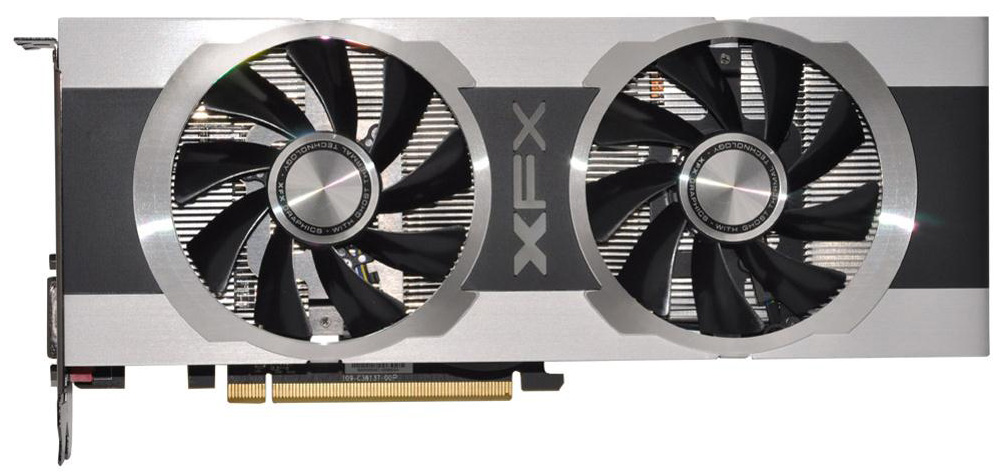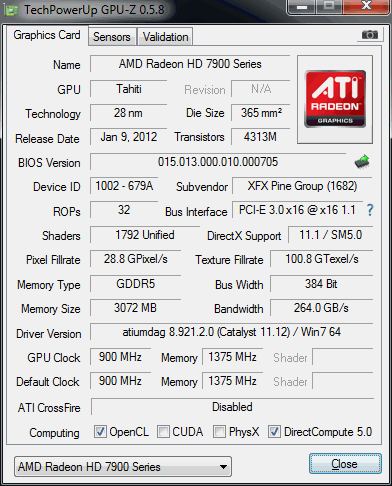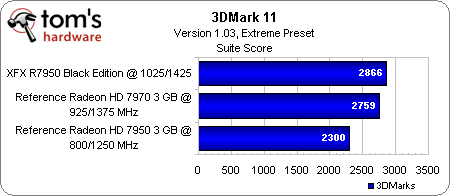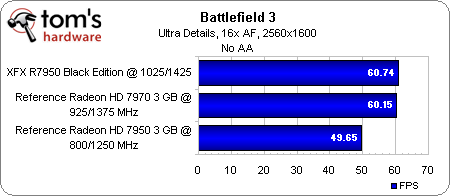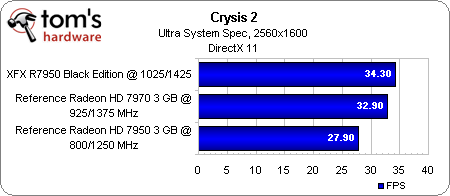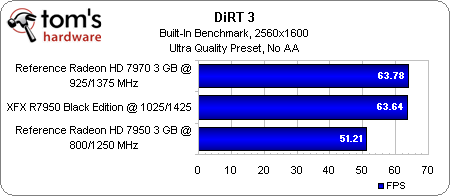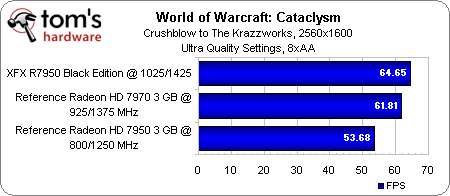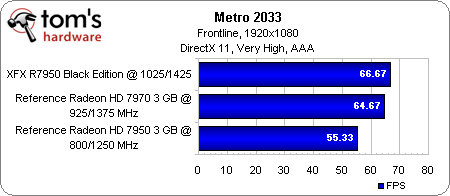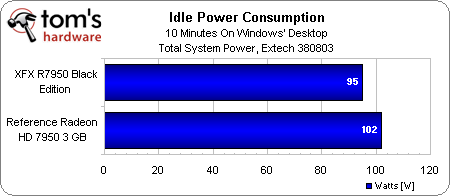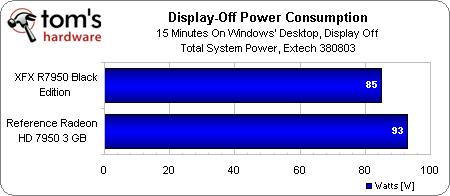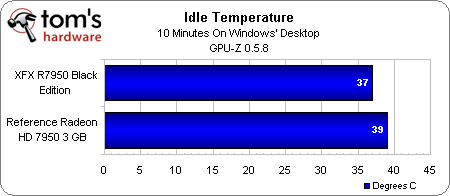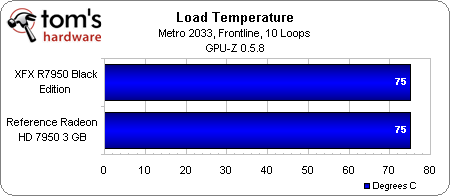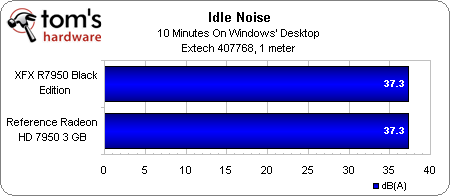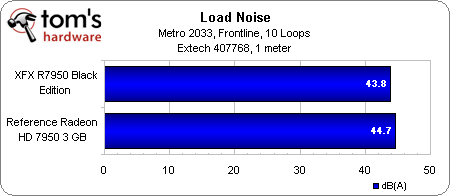AMD Radeon HD 7950 Review: Up Against GeForce GTX 580
Overclocking With XFX’s R7950 Black Edition
Anticipating today’s launch, XFX shot over its R7950 Black Edition, which deviates from AMD’s reference design on a number of different levels.
Right off the bat, we noticed that this wasn’t based on a reference PCB. Also, XFX’s cooler is dramatically different. Instead of the centrifugal fan exhausting out a single-slot grate, the card employs a feature XFX calls Double Dissipation. Two axial fans blow over aluminum fins, directing some exhaust out the back, but not all.
XFX also doesn’t rely on AMD’s reference clock rates. The R7950 Black Edition ships with a 900 MHz core and 1375 MHz memory—a notable step up from the default 800/1250 MHz.
Hoping that XFX’s aftermarket cooling and unique layout would make for a good overclocking foundation, we tweaked our sample up as high as it’d go using AMD’s Overdrive interface, eventually settling on a stable 1025 MHz core and 1425 MHz memory frequency.
As you can see in the following few charts, the impact of the speed-up is generally sufficient for catching a stock Radeon HD 7970.
Of course, curious about the efficacy of XFX’s modifications, we reset everything to default and took some power, thermal, and noise measurements.
XFX’s box says that the R7950’s dual fans help reduce noise and operating temperatures. Just as interesting, though, is the fact that idle power consumption drops by about 7 W compared to the stock Radeon HD 7950, and long-idle power use falls by 8 W.
Get Tom's Hardware's best news and in-depth reviews, straight to your inbox.
An early version of the R7950’s video BIOS employed aggressive fan speed settings that had a major impact on thermals, dropping load temperatures from 75 degrees Celsius down to 68. However, the production firmware relaxes that profile, resulting in less noise, but giving up all of the benefit in our temperature measurement. As a result, we see the same 75 degrees during a 10-loop run of the Metro 2033 benchmark.
At idle, XFX’s R7950 Black Edition does shave off two degrees compared to AMD’s reference design.
And it does so without making any additional noise. At idle, our XFX sample achieves the same whisper-quiet 37.3 dB(A) reading from one meter away as our AMD Radeon HD 7950 cards.
Under load, the production fan profile turns what was originally a very loud pair of axial fans into a solution that makes less noise than AMD’s own centrifugal implementation. The company does say that enthusiasts who really want the more aggressive firmware will be able to get it from XFX’s site.
Current page: Overclocking With XFX’s R7950 Black Edition
Prev Page Tessellation Performance And Audio Output Next Page Test Setup And Benchmarks-
Im not Paying $450 for barely better then GTX 580 performance a year after its released. They will have to knock that down to like $300, $250 for a 2gb version when Nvidia releases their next gen cards. Wait those money grubers out imo.Reply
-
thesnappyfingers stm I was thinking the same thing. But then agian it is still cheaper, more efficient compared to the gtx 580. Still, I am waiting it out till kepler.Reply -
rmpumper 7950/7970 should be priced ~$50+ of 6950/6970 prices. So as it is now, if nvidia's gtx680 will be better than 7970 they will price it at >$600? That's a load of crock.Reply -
Derbixrace great value compared to the 7970 because you can OC it to be faster than it on stock voltage and even further with voltage tweaking ;)Reply -
esrever I'd love to have one once kepler comes and these drop in price. Im gonna start saving.Reply -
It beats the GTX580 one on one in most benchies and that's not taking into account the overclocking headroom these things have, they're also power friendlier and with XFX, cooler, quieter and expected to be cheaper so what's the problem? Me thinks me smell's NV fanboys!!Reply
-
dragonsqrrl rmpumper7950/7970 should be priced ~$50+ of 6950/6970 prices. So as it is now, if nvidia's gtx680 will be better than 7970 they will price it at >$600? That's a load of crock.Every rumor and leak I've seen so far on gk104 pricing seems to indicate otherwise...Reply
http://www.guru3d.com/news/nvidia-gk104-kepler-gpu-priced-at-299-230-/
According to Nvidia's AIB partners the initial price set for the first gk104 based graphics card is $300. Of course this can go up or down based on the competition. Unfortunately, I have the feeling it'll be going up.
